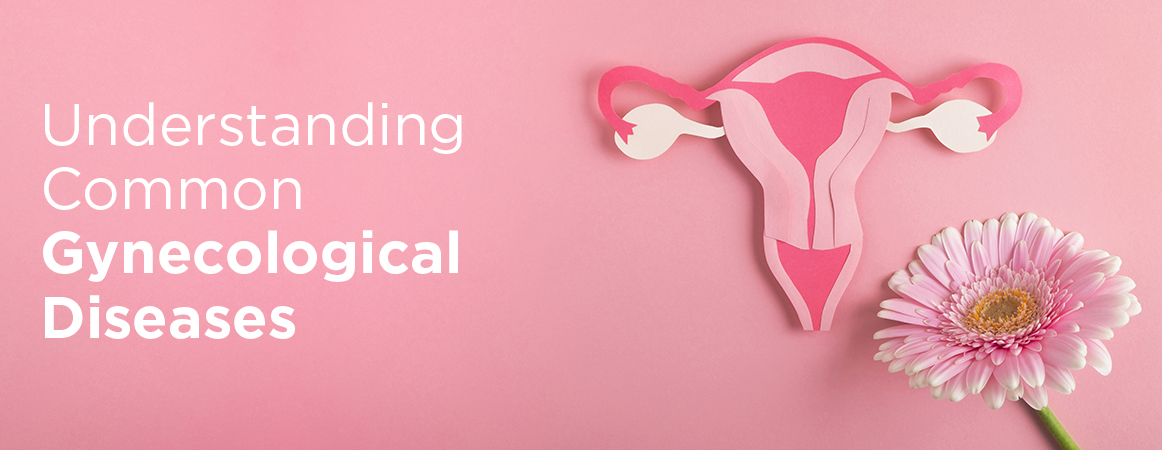Understanding Common Gynecological Diseases
Women’s health is a multifaceted domain that requires specialized care, and gynecologists play a crucial role in ensuring the well-being of women across various life stages. Gynecology, a branch of medicine dedicated to the female reproductive system, addresses a myriad of health issues that women may encounter.
In this blog, we’ll delve into some common gynecological diseases, shedding light on the importance of seeking expert care from top gynecologists in Karachi and a reputable gynecologist hospital.
1. Polycystic Ovary Syndrome (PCOS)
One of the most prevalent gynecological disorders affecting women is Polycystic Ovary Syndrome. PCOS is characterized by hormonal imbalances, leading to irregular periods, cysts on the ovaries, and other symptoms. It can have noteworthy consequences for both fertility and overall well-being. Seeking guidance from experienced gynecologists specialist in Karachi is crucial for accurate diagnosis and personalized treatment plans.
2. Endometriosis
Endometriosis occurs when tissue resembling the uterine lining grows outside the confines of the uterus. This can result in severe pelvic pain, especially during menstruation, and may lead to fertility issues. Timely consultation with top gynecologists in Karachi can help manage symptoms and improve the quality of life for women dealing with endometriosis.
3. Urinary Tract Infections (UTIs)
While UTIs are not exclusive to women, they are more common in females due to the anatomical structure of the urinary tract. Gynecologists often diagnose and treat UTIs, emphasizing the importance of maintaining proper hygiene and seeking medical attention promptly. Gynecologists in Karachi are well-experienced in handling such cases, offering comprehensive care and effective treatments.
4. Cervical Cancer
Cervical cancer, primarily caused by certain strains of the human papillomavirus (HPV), is a serious gynecological concern. Regular screenings, such as Pap smears, are essential for early detection. Top gynecologists in Karachi emphasize the significance of vaccination against HPV and routine check-ups to prevent and detect cervical cancer in its early stages.
5. Fibroids
Noncancerous growths known as uterine fibroids form within the uterus. While they often don’t cause symptoms, they can lead to heavy menstrual bleeding, pelvic pain, and fertility issues in some cases. Gynecologists at MMI play a key role in assessing the size and location of fibroids and recommending appropriate treatments, ranging from medication to surgical interventions.
6. Ovarian Cysts
Fluid-filled sacs known as ovarian cysts have the potential to develop on the ovaries. While many are harmless and resolve on their own, others may cause pain or complications. Gynecologists employ various diagnostic tools, such as ultrasounds, to evaluate ovarian cysts and determine the best course of action. Memon Medical Institute offers advanced imaging technologies for accurate diagnosis.
7. Menopause and Hormonal Changes
Menopause marks the end of a woman’s reproductive years and involves hormonal changes that can lead to symptoms like hot flashes, mood swings, and bone density loss. Gynecologists guide in managing menopausal symptoms and maintaining overall health during this transitional phase.
The Takeaway:
- Early Awareness is Empowerment: Understanding the signs and symptoms of gynecological diseases empowers women to take charge of their health and seek timely medical attention.
- Regular Screenings are Crucial: Routine gynecological check-ups, including Pap smears and HPV screenings, play a pivotal role in the early detection and prevention of conditions like cervical cancer.
- Knowledge is Prevention: Educating oneself about conditions such as endometriosis, PCOS, and pelvic inflammatory disease facilitates preventive measures and informed decision-making regarding reproductive health.
- Holistic Approach to Care: Recognizing the interconnectedness of physical and reproductive health encourages a holistic approach, ensuring comprehensive well-being.
- Open Communication with Healthcare Providers: Establishing transparent communication with healthcare professionals fosters a proactive healthcare partnership, facilitating early intervention and management.
By internalizing these takeaways, women can navigate their reproductive health journey with awareness, confidence, and a commitment to preventive care, ultimately promoting a healthier and more informed approach to gynecological well-being.
Conclusion:
Navigating the landscape of gynecological diseases requires a proactive approach to women’s health. Regular check-ups with top gynecologists in Karachi and visits to gynecologist hospitals can contribute significantly to early detection, effective management, and prevention of gynecological issues. Women are encouraged to prioritize their health and well-being by staying informed, seeking professional guidance, and fostering a partnership with their gynecologists for comprehensive care throughout every stage of life. Remember, knowledge and timely intervention empower women to take charge of their reproductive health and lead fulfilling lives.


